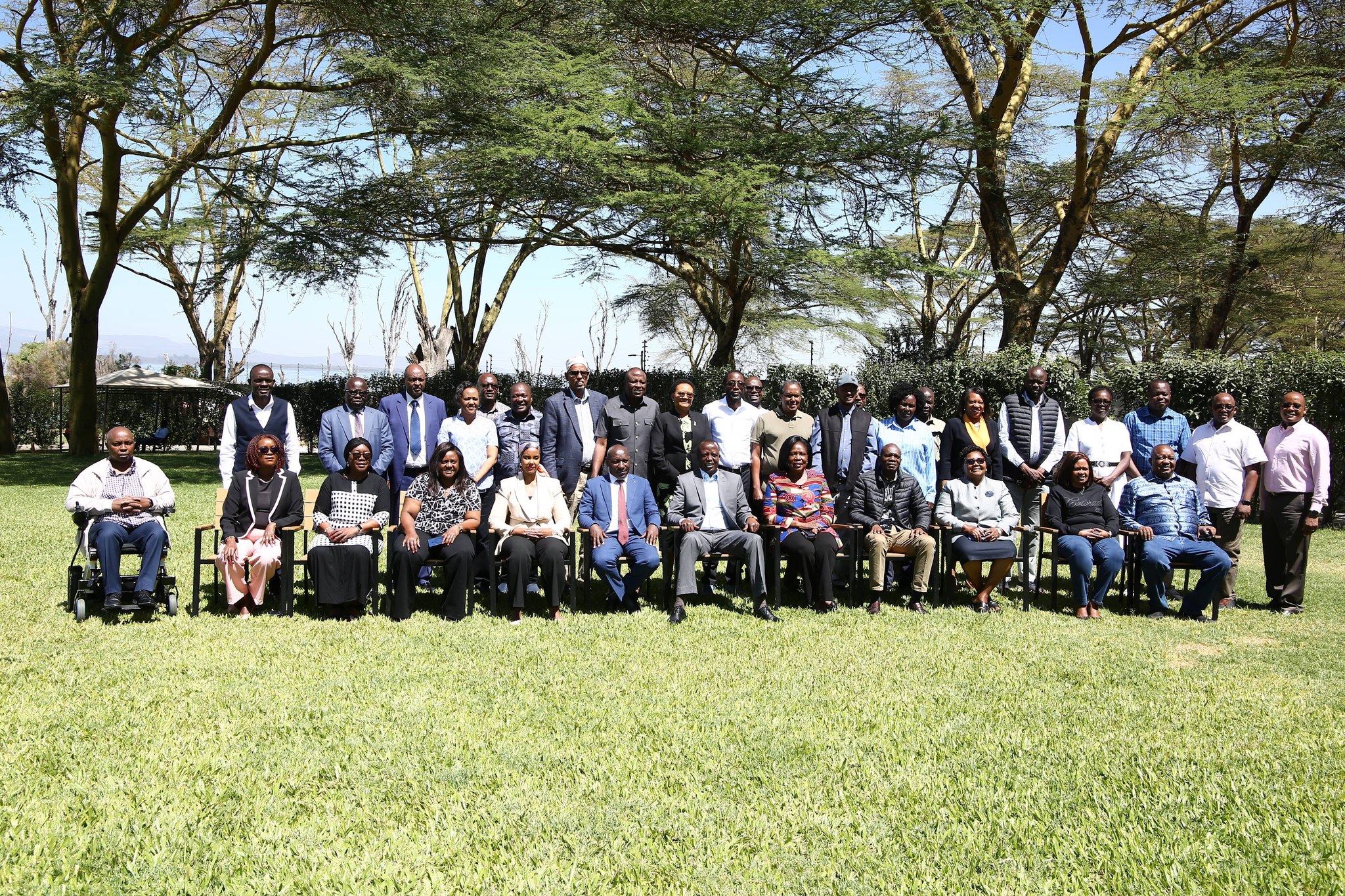The 63rd edition of the Kenya Schools and Colleges National Drama and Film Festivals unfolded with dazzling creativity and thought-provoking performances at Melvin Jones, Nakuru.
As students from across the country converged to showcase their artistic talents, the theme for this year, “Leveraging Technology to Nurture Learners’ Potential in Creative Arts,” emerged not only as a guiding principle but also as a reflection of the current concerns and aspirations shaping Kenya’s educational and social landscape.
This year’s festival stood out for its unapologetic exploration of real-life issues affecting young people. Through gripping plays, emotionally charged choral verses, captivating narratives, and hard-hitting documentaries, the learners stepped into the spotlight, shedding light on the burdens they bear, the challenges they face, and the hopes they carry. The power of performance art was on full display as students used it to engage in dialogue with society, confronting painful realities and prompting critical reflection.
Golden Elites Academy from Kisumu moved hearts with their play “My Name is Joy,” a touching story about the bullying of special needs children. The play did not merely highlight the victimhood of these learners but pushed audiences to consider the broader societal attitudes that perpetuate such cruelty. By focusing on a physically challenged character, the performance humanized the struggle and resilience of these learners, making a strong case for inclusion, empathy, and respect in both school and community spaces.
Kitengela International School struck a similarly compassionate chord with their choral verse “Sherehe”. Their powerful performance was a tribute to persons with disabilities, questioning a society that often marginalizes them. With carefully chosen words and harmonies that pierced through the auditorium, the students reminded audiences of the everyday invisibility and struggle endured by differently abled individuals, urging for recognition and equal treatment.
The play “Portraits of Life” by Alaro Junior School from Homa Bay was equally stirring. This production tackled the issue of drug abuse with unflinching honesty. Through a story of broken dreams and ruined potential, the young actors portrayed the seduction and devastation of substance abuse, a vice that continues to derail many young lives. The play’s raw narrative served as a cautionary tale and a wake-up call to families, educators, and policymakers alike.
READ ALSO:
Principals urged to prepare well for Senior School education under new curriculum
Perhaps the most haunting entry came from Londiani Boys, whose documentary “Jinxed Junction” revisited the tragic accident that claimed 53 lives at Londiani Junction. The students presented more than just a recounting of events—they offered a deeply personal lens on the tragedy, revealing how such incidents leave lasting scars on communities. The documentary served as a platform for calling out the failures of infrastructure, the negligence in enforcing traffic regulations, and the general apathy that continues to make Kenyan roads perilous.
Waa Girls brought political allegory into the mix with their narrative “Deputy School Captain”. The piece captured the corruption and favouritism that often follow elections, even at the school level. In a society where political affiliations often dictate access to resources, this play cleverly mirrored the national political scene within the microcosm of a school environment. The message was clear: leadership is a responsibility that transcends partisanship and must be guided by justice and fairness.
The coastal region was ably represented by PCA Makupa, whose play “Winners’ Fears” followed the journey of Anissa, a diligent girl striving to thrive in a hostile elite school environment. Despite her academic excellence, Anissa’s reward was isolation and resentment, a powerful commentary on how merit can sometimes breed enmity instead of admiration. This performance shone a spotlight on the psychological toll of toxic school cultures and reminded the audience that success often comes with its own silent battles.
From Western Kenya, Bishop Atundo Kimaeti brought a Swahili spoken word performance, “Kizazi cha Mtandao”, that cut across generational lines. The piece lamented the growing grip of social media on youth, exposing its darker side—addiction, vanity, and misinformation—while acknowledging its potential if used wisely. The performance challenged youth and adults to rethink how they engage with digital platforms, offering a much-needed cultural critique in an age of online overindulgence.
St. Peter’s Chemalul from Rift Valley presented a narrative titled “The Swapping Game”, which cleverly dramatized the subtle yet profound impact of modern technology. The play portrayed how digital distractions could swap real human interaction with virtual emptiness, leaving social alienation and moral confusion behind. Mlimani Comprehensive School tackled a similar concern in their performance of “The Assignment”, where a child uses school-provided technology not for learning but for watching cartoons. This depiction raised pertinent questions about the monitoring and effectiveness of digital learning tools in classrooms.
Mirror to society
In totality, the performances at this year’s festival did more than entertain. They informed, challenged, and provoked. The use of creative arts as a mirror to society was not only evident but also masterfully executed. The learners demonstrated that when given the right platforms and support, they are capable of articulating complex social issues with insight and emotional depth.
What was particularly striking was the consistency with which technology emerged as both a blessing and a burden. From digital addiction to its potential in inclusive education, the discourse was nuanced and timely. The theme was not treated as a mere slogan but embraced and interrogated, proving that students are not just passive recipients of the digital age but active commentators shaping its trajectory.
The 63rd edition of the Kenya Schools and Colleges National Drama and Film Festivals affirmed, once again, the role of arts in education. It reminded all stakeholders that beyond exams and grades lies a generation of thoughtful, expressive, and visionary young people who are already engaging with the nation’s most urgent questions. Their voices, clear and impassioned, echoed a call for understanding, responsibility, and, above all, action.
By Kamomonti wa Kiambati
Kamomonti is a thespian and an English/Literature teacher in Gatundu North Sub County.
You can also follow our social media pages on Twitter: Education News KE and Facebook: Education News Newspaper for timely updates.
>>> Click here to stay up-to-date with trending regional stories
>>> Click here to read more informed opinions on the country’s education landscape
>>> Click here to stay ahead with the latest national news.






